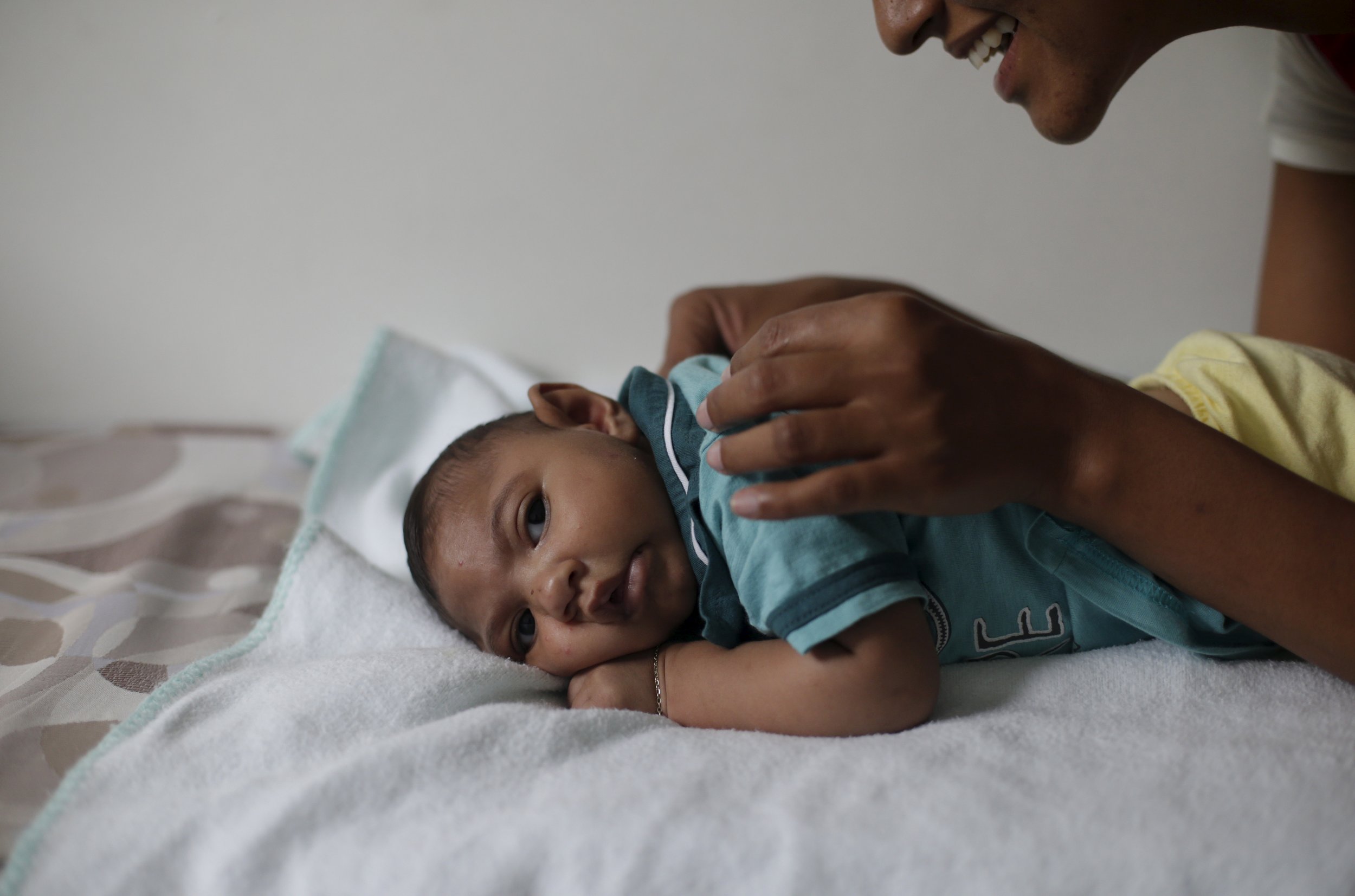
Late last week, the Centers for Disease Control released advice regarding the Zika virus for those traveling to or living in Miami.
While Zika is currently confirmed as being domestically contracted only in South Florida, investigations are spreading across the state, and the range for the mosquitos that can carry Zika covers a wide swath of the country, extending anxieties about the disease's future.
Given that Zika infections can cause serious birth defects—microcephaly chief among them—and that Zika can be transmitted by mosquitos or sexual contact, this news is of particular concern for pregnant women and those seeking to get pregnant.
It is not surprising, then, that Zika is making its way into abortion politics.
One way that Zika and abortion politics interact is easily illustrated geographically. As a map in Time shows, the range for the mosquitos that can carry Zika includes many of the states with the most abortion restrictions.
This sets up the possibility that women in states where Zika can spread will face substantial impediments if they choose to end their pregnancies for fear that an infection has caused birth defects—an option increasingly sought in Zika-ravaged countries.
This possibility is intensified when one considers that microcephaly, the most feared Zika-linked birth defect, is not detectable until late in the second trimester or early in the third trimester, placing discovery at a time after which many states have banned abortion.
What's more, leaders within the anti-abortion movement have recently stated that spreading bans that start at 20 weeks, or roughly halfway through the second trimester of pregnancy, is now a priority.
The grounds for a possible political conflict, pitting anti-abortion activists against those fearing severe birth defects, is easy to imagine.
This has led some to look to the 1960s for guidance about how this conflict might proceed. It was at this time, before the Supreme Court's decision in Roe v. Wade, that two analogous public fears grabbed national attention and accelerated the push to reform the country's abortion laws.
In 1962, Sherri Finkbine became the focal point of an early high-profile abortion fight. Finkbine, a media figure and mother of four, had taken thalidomide during her fifth pregnancy and later discovered that the drug was linked to severe birth defects. She consulted her doctor, who scheduled a therapeutic abortion, an ambiguous legal category that existed before Roe.
The procedure was canceled, however, after she spoke to a journalist with the hope of spreading the word about the risks of thalidomide. The ensuing conflict turned, in the words of University of California, Berkeley, professor Kristen Luker, "what had been a trickle of public interest" in abortion into "a torrent."
The early 1960s also saw a rubella outbreak in the United States. Like Zika, rubella can cause serious birth defects. Fears of such defects and the uncertainty that doctors faced in deciding whether it was legal to provide abortions for infected mothers pushed the pre-Roe abortion reform movement forward.
Professional organizations from the medical, legal and business communities responded by pushing to reform state laws to clarify the legality of such abortions.
Thalidomide and rubella provided the means for the public to talk about abortion in a way that many could sympathize with, rather than demonize, women who sought to end their pregnancies, helping to set the ground for the ensuing legal reforms.
This has led some to wonder whether Zika will similarly change the conversation about abortion in the U.S., adding to the momentum for reproductive rights advocates after their recent Supreme Court victory over Texas's most restrictive abortion regulations.
While it can and has already begun to factor into the political conversation, there are reasons to believe Zika may not have as much effect as its predecessors.
In brief, abortion in the 1960s was not the political issue that it is today. Public discussion of abortion was rare, and organized political groups on either side were largely absent. This allowed the room necessary for both public opinion development and political action.
While contemporary public opinion on abortion is complex, and Zika seems to fit into the majority's views of acceptable abortion, the anti-abortion movement is far more organized today, limiting the political room to reform restrictive laws.
This leads to a second point: While we think about abortion as a national issue, the politics of abortion is local. Specific states, not the federal government, have been pursuing increasingly restrictive abortion regulations. States that do so have strong anti-abortion organizations, weaker abortion rights groups, and more perceived public support for restricting access.
This means that while the nation may see abortion through Zika as it did through thalidomide and rubella, there are strong forces that oppose legal reform in the states where it could most matter.
Joshua C. Wilson is associate professor of political science at the University of Denver. He is the author of The New States of Abortion Politics and The Street Politics of Abortion: Speech, Violence, and America's Culture Wars.
Uncommon Knowledge
Newsweek is committed to challenging conventional wisdom and finding connections in the search for common ground.
Newsweek is committed to challenging conventional wisdom and finding connections in the search for common ground.
About the writer
To read how Newsweek uses AI as a newsroom tool, Click here.








